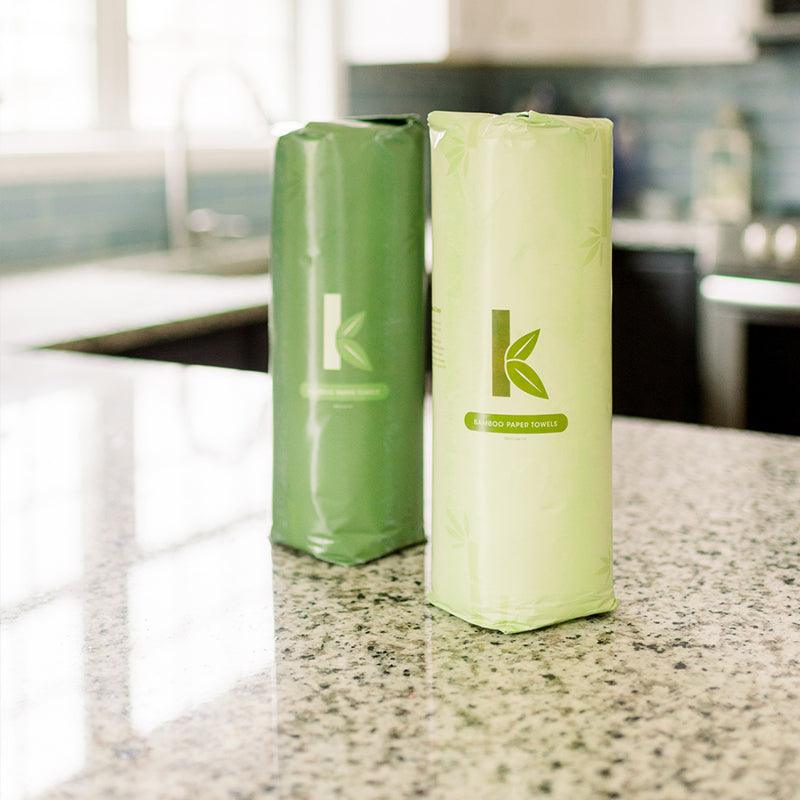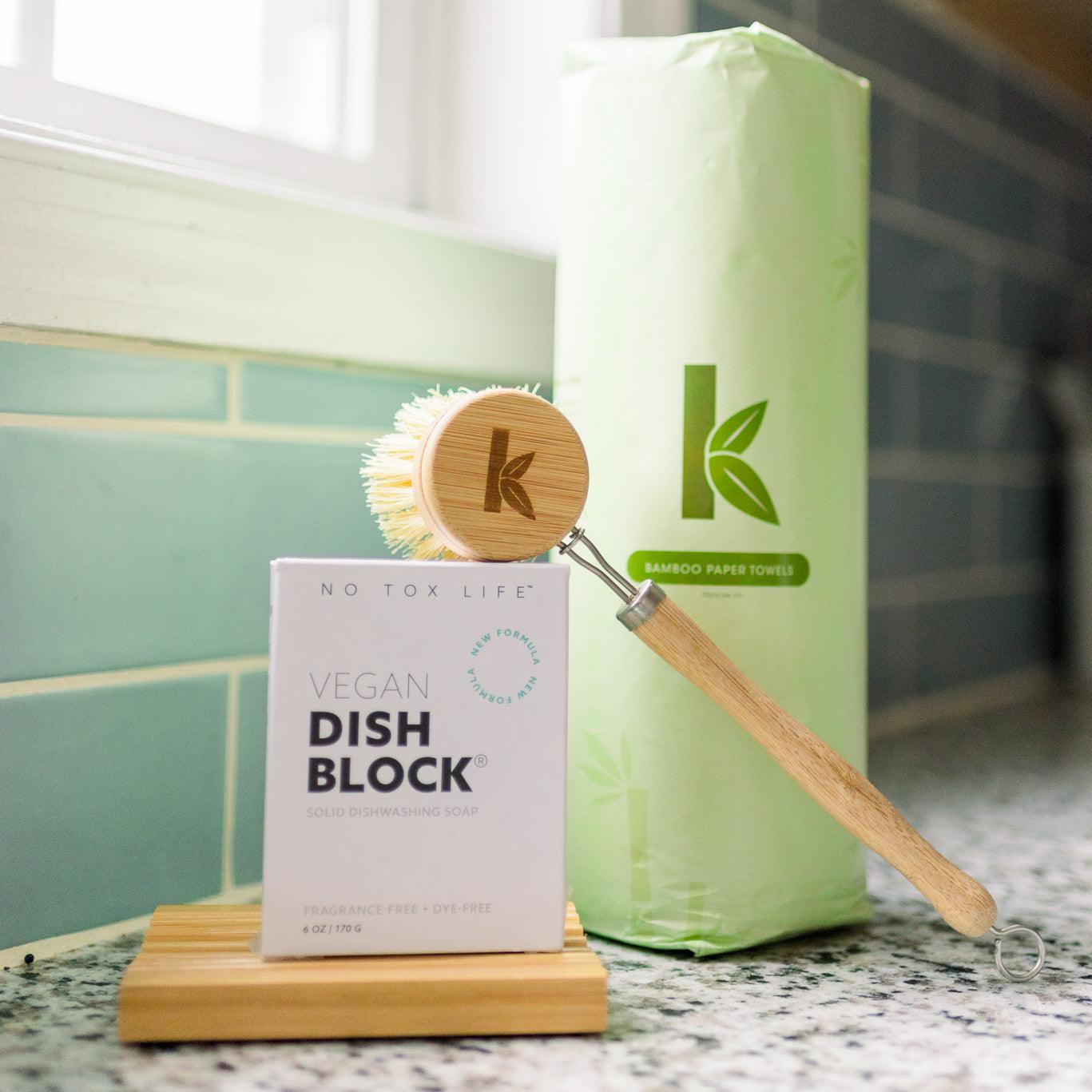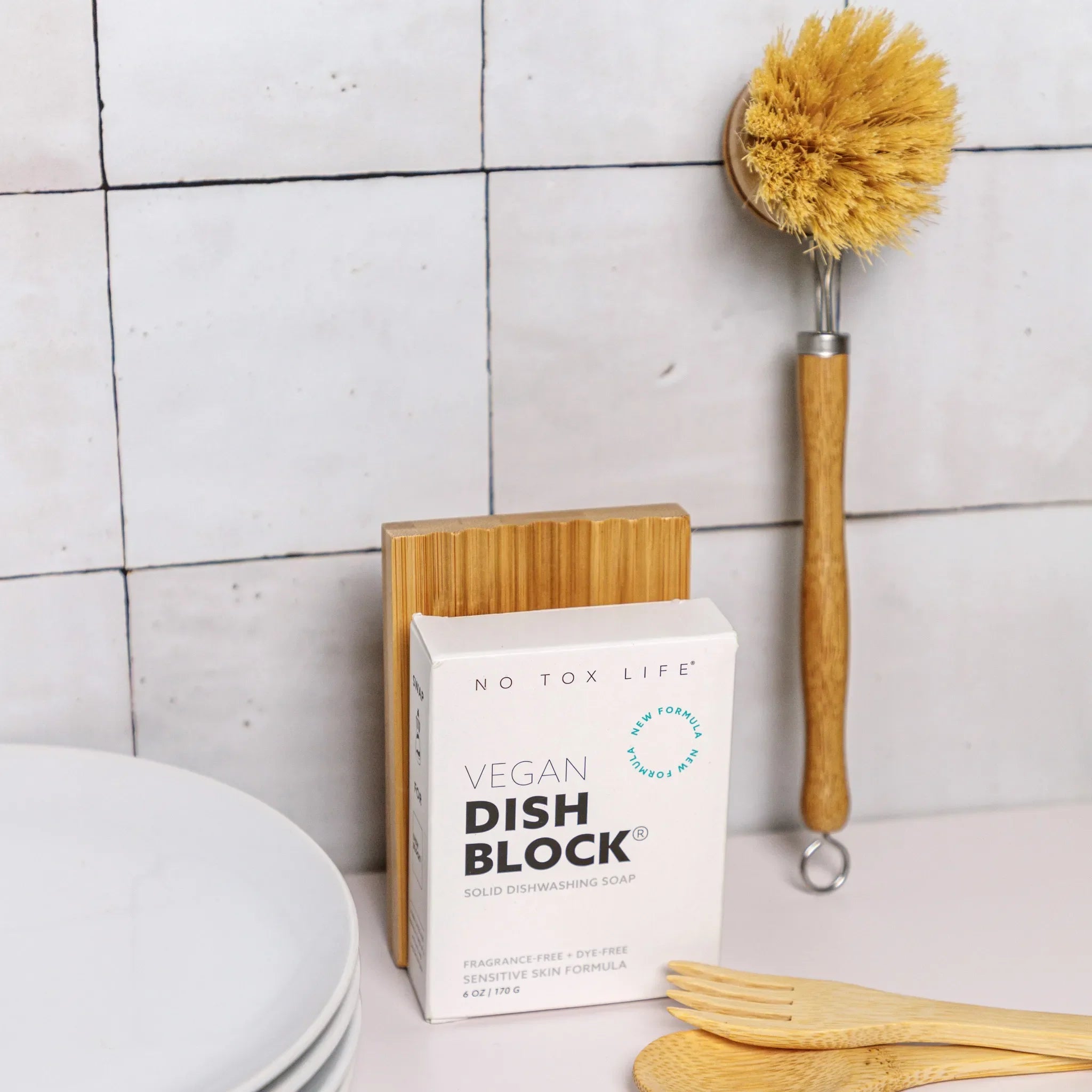Many of us have fond memories of hanging out in our kitchens. We might remember cooking a recipe that has been passed down for generations. We might remember baking our favorite cookies or cakes with our families. We might remember having days filled with laughter and sharing wisdom around the kitchen table. We might simply remember sun streaming in our windows and the scent of fresh herbs in the air. Kitchens often are places filled with joy.
Too often though our kitchens are also filled with lots of stuff. Food stuff. Cooking stuff. Cleaning stuff. It can be surprising just how many items we use to make our food, store our food, and do other kitchen tasks. Therefore, it is so important to work towards a zero-waste kitchen by using zero waste products. These products allow us to keep building memories for ourselves and our families while minimizing our waste production.
In many cases a zero-waste kitchen refers to reducing the amount of plastic we use. We focus on items that are sustainable, or in other words, items that can be recycled or composted when we are done with them. While taking the step towards a sustainable household might seem like a lot of effort, by making a few easy switches we can be well on our way. Let us at Seek Bamboo help you learn how to go zero waste.
Bringing Food Into Our Kitchen
All too often when we go to the grocery store, we end up with lots of single use plastic bags, no matter how hard we might try to avoid them. The good news is we have a wide range of zero-waste items we can choose from to reduce our plastic use at the grocery store. We might bring a reusable grocery bag to carry our groceries. In addition, if we plan on getting fresh produce, we might choose to bring a reusable mesh produce bag or a reusable cotton produce bag to keep our produce safe and sound without having to reach for the flimsy plastic bags that most grocery stores provide for that purpose. Our fruits and vegetables do not need to be brought into our kitchens in plastic.
Eating And Storing Our Food
Once we have brought food into our kitchens the next step is to prepare and enjoy our food. We might choose bamboo cutting boards or bamboo plates. We might choose to use a bamboo cutlery set which we can simply compost when we are done. All these products help us make yummy food while keeping large amounts of plastic out of our kitchens.
Once we are done cooking and eating, we may find we have leftovers that we want to store. This is a great time to reach for beeswax wraps which can take the place of single use plastic wrap and yet is able to keep all our food fresh. In addition, we might consider various glass or ceramic storage containers instead of reaching for plastic containers because these are zero-waste and because they are less likely to get stained or retain odors.
Kitchen Clean Up
Once all the food has been put away, we are likely to find that we need to do a bit of clean up. If we spill something on the counter, we might choose to use bamboo paper towels. Bamboo is a quickly growing plant and can help us avoid contributing to deforestation. If we are ready to do the dishes, we might reach for the vegan dish soap block which is stored on our bamboo soap dish. We probably will also need to reach for a bamboo dish brush to help scrub off any food that is stuck on our dishes (and it is never a bad idea to have a few bamboo dish brush replacement heads on hand.) Together these products make cleaning us easy and allow us to spend more time in the kitchen making memories.
We can make our kitchens zero waste from start to finish. Not only does this mean we know that our kitchens are sustainable, but it also means that we will not have to worry about taking out the trash as often which is always a good thing. By making sure we use zero-waste items to get our food to our tables, prepare and store our food, and to clean up afterwards we can easily make the switch to a zero-waste lifestyle. This means we can spend more time making wonderful memories in our kitchen with our family and friends and less time worrying about the environmental impact of our choices. Learn more at our zero waste blog and always remember we are in this together.




